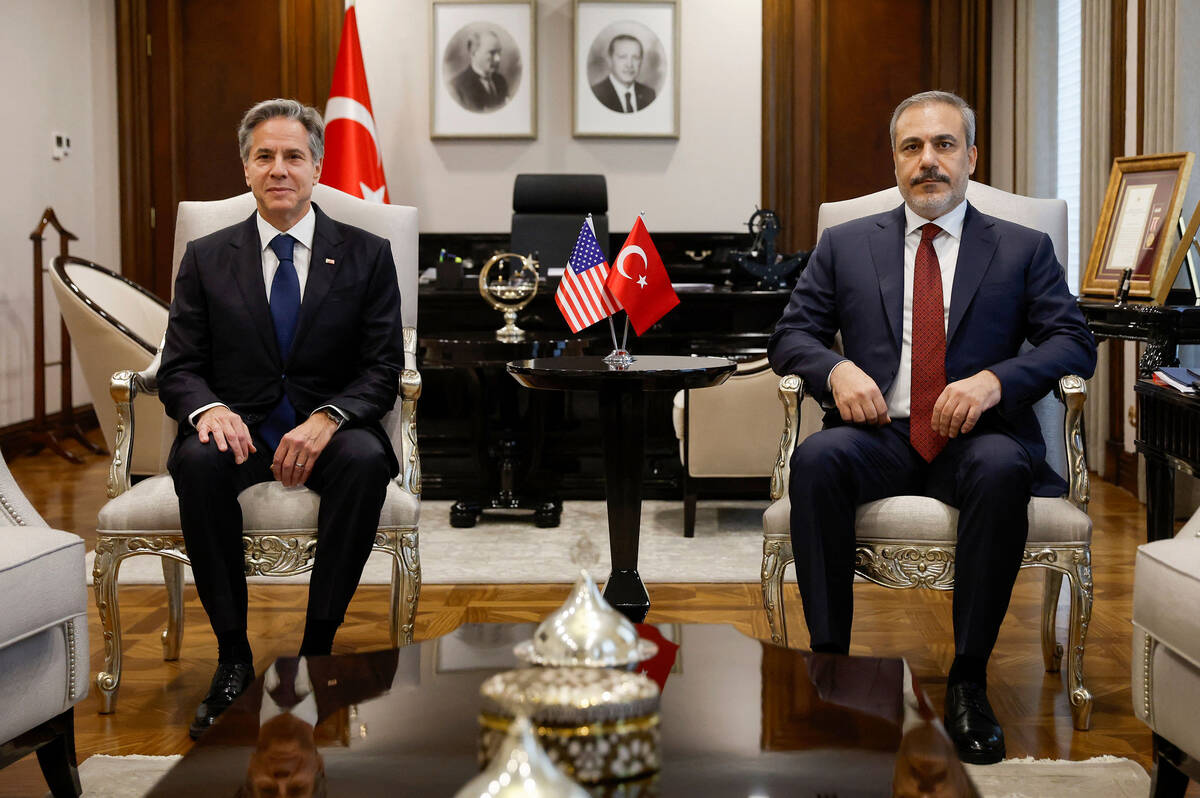Blinken visit more labor than payoff
After stopping in five cities in four days in his latest Middle East mission, the best a tired-looking Antony Blinken could say about the results was that “all of this is a work in progress.”
Judging from the outward results of the U.S. secretary of state’s second marathon trip through the region in the less than a month since Israel’s latest war with Hamas began, there was more labor than payoff.
In Israel, Blinken’s calls for humanitarian “pauses” in the assault of the Gaza Strip were met with more air attacks and ground operations. A stop in Jordan, one of the U.S.’s closest allies in the region, brought an unusually public lecture about the need for not just breaks but an immediate cease-fire — an option Israel and the U.S. reject.
Monday’s visit to another ally — Turkey — brought a snub by the president and a sense of U.S. frustration at the lack of progress in talks with others, according to officials there who asked for anonymity to discuss private conversations.
A month after the Hamas terrorist attack on Israel killed more than 1,400 people, the U.S.’s nightmare scenario of a wider regional war has so far been avoided, with Iran-backed groups keeping attacks limited. But Washington hasn’t had as much success in expanding humanitarian aid into the Gaza Strip.
“Blinken had some success on that previous trip, not so much on this one,” said Aaron David Miller, a former U.S. diplomat who has advised both Democratic and Republican secretaries of state on the Middle East and is now a senior fellow at the Carnegie Endowment for International Peace. “The administration’s capacity to bring leverage against Israel is very limited.”
The challenge of the trip highlighted what people close to Blinken say has become a key tenet of U.S. diplomacy since the Hamas terrorist attack: even if chances of success are low, the dangers of a wider war are too great not to try everything to prevent it. The risk of that approach — as evidenced by successive leaders appearing to rebuff Blinken — is that the U.S. looks ineffectual, and its ability to shape the conflict vastly diminished.
Local authorities backed by Hamas — which the U.S. and E.U. designate as terrorists — said Monday the death toll in Gaza broke 10,000. That couldn’t be independently confirmed. The United Nations said 88 of its workers had been killed since the war began.
The U.S. has stepped up calls for humanitarian pauses in the fighting to allow aid in and hostages and others out. Publicly, Israel has rejected that unless Hamas releases the more than 200 hostages it took from Israel. A deal between Israel, Egypt and Hamas to allow foreigners trapped in Gaza to leave also seemed to stall over the weekend.
President Joe Biden added his muscle to the message Monday, raising “the possibility of tactical pauses” in his latest phone call with Prime Minister Benjamin Netanyahu on Monday. There was no public indication that Israel was softening its resistance, however.
Still, Blinken hinted in Turkey on Monday that his closed-door conversations may have been more productive than the public statements made them seem.
“I think you’ll see in the days ahead that that assistance can expand in significant ways so that more gets into people who need it and gets to the people who need it, as well as making sure that people can continue to come out of Gaza,” he told reporters, without providing details.
Publicly, neither Israeli nor Arab officials were showing much flexibility.
“I made it clear that we are going with full steam ahead, and that Israel refuses any temporary cease-fire that does not involve the release of the kidnapped Israelis,” Netanyahu said Monday. “Israel is not allowing fuel into Gaza and objects to funds being transferred into the Strip.”






















